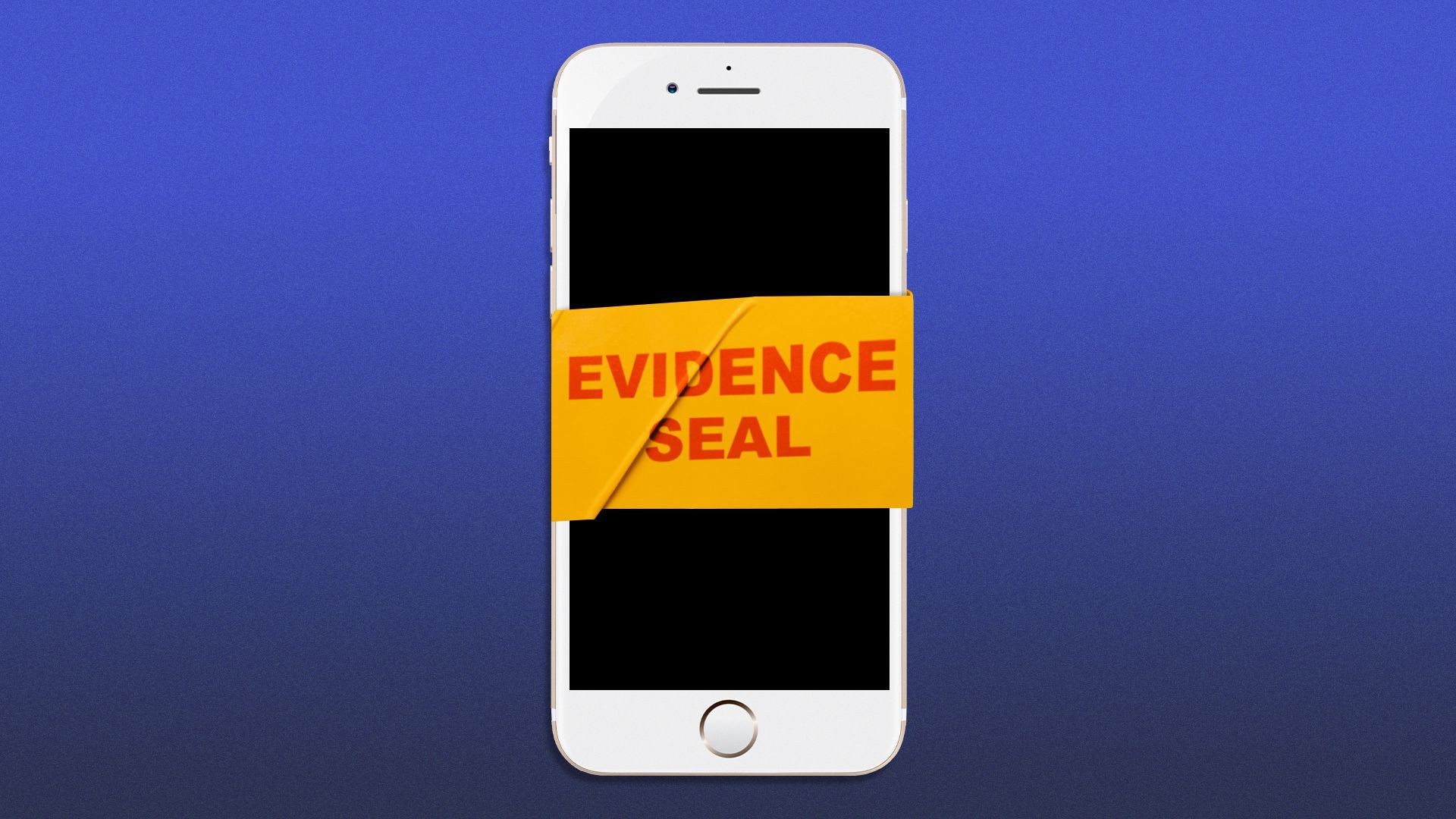Without Roe, data will become a company headache and a user nightmare
Add Axios as your preferred source to
see more of our stories on Google.

Illustration: Natalie Peeples/Axios
The treasure troves of data tech companies have spent decades accumulating could put them right in the middle of efforts to prosecute people if the Supreme Court eliminates federal guarantees of abortion rights.
Why it matters: If Monday's leaked draft opinion becomes law, court orders could soon arrive at tech firm offices seeking info about individuals searching for emergency contraception, those seen near a suspected abortion clinic and more.
The big picture: Mass data collection and the potential for a surveillance state has been a growing, if largely abstract concern. But the seemingly imminent end to guaranteed legal access to abortion spotlights a specific risk such data can pose right now.
- Tech companies generally say they will protect user data but comply with data demands required by local laws in countries where they operate.
What they're saying: While tech companies were loath to talk on the record about how they might address such legal requests in post-Roe v. Wade abortion cases, lawyers and other executives at several companies are definitely having these discussions.
- And privately, many tech employees said they were glad the topic was finally being discussed.
Between the lines: Law enforcement and prosecutors have multiple ways to get many different kinds of data, including location data, search requests and purchase history.
Bulk vs. individual: Law enforcement requests could come in the form of seeking data for a specific person or seeking, say, all people who were near a particular clinic, or maybe all out-of-state residents near a particular clinic.
- Tech companies have a track record of fighting bulk collection efforts more forcefully, for example, than do cellular providers, says Jennifer Granick, the ACLU's surveillance and cybersecurity counsel.
Lawful order vs. buying data: Right now there are no rules requiring law enforcement to obtain a court order for data they can purchase, and there's a lot of very personal information being sold by data brokers.
- A bill called the Fourth Amendment is Not For Sale Act has been introduced in Congress to bar this practice. For now, though, plenty of data is on the market, including some specifically related to abortion.
Medical data: In addition to non-medical information such as location, shopping and search data, medical records themselves could be targeted. And those records are far more digitized than they were in the pre-Roe era.
- While HIPAA restricts how providers share medical information, it doesn't prevent them from sharing it with law enforcement. "I don’t think people can rely on HIPAA as being a defense in these cases if there were a criminal prosecution," Granick said.
Be smart: It's not just people who have abortions who may find themselves the subject of investigations.
- Anyone who is pregnant and has a miscarriage, for example, might find prosecutors seeking their internet search or other data to determine whether a provider delivered illegal services.
- Likewise, as states have sought to criminalize gender-affirming health care, data requests could be used, for example, against parents researching health options for their kids.
Internet platform operators aren't the only players here. Wireless carriers have detailed personalized location information on every user with a cell phone as well as tower-specific data, such as every customer who is near a specific location.
What companies can do: One key move for tech firms is to move from hoarding data to minimizing it, experts say.
- Apple officials, for example, are breathing a bit of a sigh of relief, since they don't store or have access to much of the information at stake in these conflicts.
- Other companies might want to use the time between now and when a ruling becomes final to look at their own practices to see whether they gather and hold data that has more potential harm to their users than benefit.
What individuals can do: Experts say it may be time to rethink period-tracking apps and to rely more on incognito mode in browsers, turning off location tracking and understanding your options for data deletion.
- Google, for example, lets users quickly delete recent search activity and set other data to auto delete after a chosen period of time. The Digital Defense Fund has a detailed set of recommendations here.
What's next: Advocates say these looming data fights highlight the urgent need for a national data protection law as well as rules prohibiting bulk data requests from law enforcement.
- "Large tech companies surveillance-driven profit models lead to massive data collection that creates the perfect infrastructure for oppression," Fight for the Future's Evan Greer told Axios. "If people seeking or providing reproductive healthcare are criminalized, tech companies will be aiding and abetting government crackdowns on reproductive rights."
